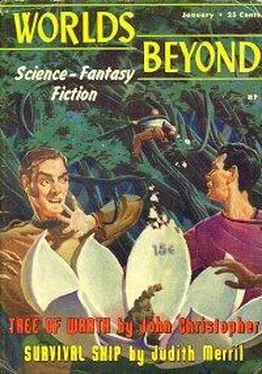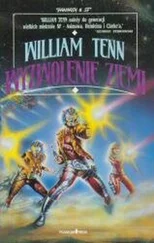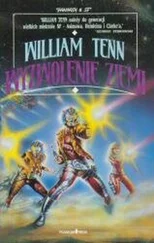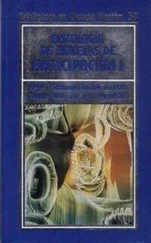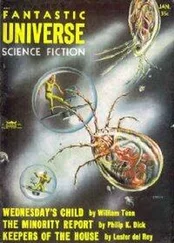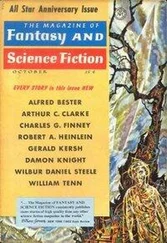William Tenn - Null-P
Здесь есть возможность читать онлайн «William Tenn - Null-P» весь текст электронной книги совершенно бесплатно (целиком полную версию без сокращений). В некоторых случаях можно слушать аудио, скачать через торрент в формате fb2 и присутствует краткое содержание. Год выпуска: 1951, Издательство: Hillman Periodicals, Inc., Жанр: Фантастика и фэнтези, на английском языке. Описание произведения, (предисловие) а так же отзывы посетителей доступны на портале библиотеки ЛибКат.
- Название:Null-P
- Автор:
- Издательство:Hillman Periodicals, Inc.
- Жанр:
- Год:1951
- ISBN:нет данных
- Рейтинг книги:3 / 5. Голосов: 1
-
Избранное:Добавить в избранное
- Отзывы:
-
Ваша оценка:
- 60
- 1
- 2
- 3
- 4
- 5
Null-P: краткое содержание, описание и аннотация
Предлагаем к чтению аннотацию, описание, краткое содержание или предисловие (зависит от того, что написал сам автор книги «Null-P»). Если вы не нашли необходимую информацию о книге — напишите в комментариях, мы постараемся отыскать её.
Null-P — читать онлайн бесплатно полную книгу (весь текст) целиком
Ниже представлен текст книги, разбитый по страницам. Система сохранения места последней прочитанной страницы, позволяет с удобством читать онлайн бесплатно книгу «Null-P», без необходимости каждый раз заново искать на чём Вы остановились. Поставьте закладку, и сможете в любой момент перейти на страницу, на которой закончили чтение.
Интервал:
Закладка:
Null-P
by William Tenn
Several months after the Second Atomic War, when radioactivity still held one-third of the planet in desolation, Dr. Daniel Glurt of Fillmore Township, Wisc., stumbled upon a discovery which was to generate humanity’s ultimate sociological advance.
Like Columbus, smug over his voyage to India; like Nobel, proud of the synthesis of dynamite which made combat between nations impossible, the doctor misinterpreted his discovery. Years later, he cackled to a visiting historian:
“Had no idea it would lead to this, no idea at all. You remember, the war had just ended: we were feeling mighty subdued what with the eastern and western coasts of the United States practically sizzled away. Well, word came down from the new capital at Topeka in Kansas for us doctors to give all our patients a complete physical check. Sort of be on the lookout, you know, for radioactive burns and them fancy new diseases the armies had been tossing back and forth. Well, sir, that’s absolutely all I set out to do. I’d known George Abnego for over thirty years—treated him for chicken-pox and pneumonia and ptomaine poisoning. I’d never suspected!”
Having reported to Dr. Glurt’s office immediately after work in accordance with the proclamation shouted through the streets by the county clerk, and having waited patiently in line for an hour and a half, George Abnego was at last received into the small consulting room. Here he was thoroughly chest-thumped, X-rayed, blood-sampled, and urinanalyzed. His skin was examined carefully, and he was made to answer the five hundred questions prepared by the Department of Health in a pathetic attempt to cover the symptoms of the new ailments.
George Abnego then dressed and went home to the cereal supper permitted for that day by the ration board. Dr. Glurt placed his folder in a drawer and called for the next patient. He had noticed nothing up to this point; yet already he had unwittingly begun the Abnegite Revolution.
Four days later, the health survey of Fillmore, Wisc., being complete, the doctor forwarded the examination reports to Topeka. Just before signing George Abnego’s sheet, he glanced at it cursorily, raised his eyebrows and entered the following note: “Despite the tendency to dental cavities and athlete’s foot, I would consider this man to be of average health. Physically, he is the Fillmore Township norm.”
It was this last sentence which caused the government medical official to chuckle and glance at the sheet once more. His smile was puzzled after this; it was even more puzzled after he had checked the figures and statements on the form against standard medical references.
He wrote a phrase in red ink in the right-hand corner and sent it along to Research.
His name is lost to history.
Research wondered why the report on George Abnego had been sent up—he had no unusual symptoms portending exotic innovations like cerebral measles or arterial trichinosis. Then it observed the phrase in red ink and Dr. Glurt’s remark. Research shrugged its anonymous shoulders and assigned a crew of statisticians to go further into the matter.
A week later, as a result of their findings, another crew—nine medical specialists—left for Fillmore. They examined George Abnego with coordinated precision. Afterwards, they called on Dr. Glurt briefly, leaving a copy of their examination report with him when he expressed interest.
Ironically, the government copies were destroyed in the Topeka Hard-Shelled Baptist Riots a month later, the same riots which stimulated Dr. Glurt to launch the Abnegite Revolution.
This Baptist denomination, because of population shrinkage due to atomic and bacteriological warfare, was now the largest single religious body in the nation. It was then controlled by a group pledged to the establishment of a Hard-Shelled Baptist theocracy in what was left of the United States. The rioters were quelled after much destruction and bloodshed; their leader, the Reverend Hemingway T. Gaunt—who had vowed that he would remove neither the pistol from his left hand nor the Bible from his right until the Rule of God had been established and the Third Temple built—was sentenced to death by a jury composed of stern-faced fellow Baptists.
Commenting on the riots, the Fillmore, Wisc., Bugle-Herald drew a mournful parallel between the Topeka street battles and the destruction wreaked upon the world by atomic conflict.
“International communication and transportation having broken down,” the editorial went on broodingly, “we now know little of the smashed world in which we live beyond such meager facts as the complete disappearance of Australia beneath the waves, and the contraction of Europe to the Pyrenees and Ural Mountains. We know that our planet’s physical appearance has changed as much from what it was ten years ago, as the infant monstrosities and mutants being born everywhere as a result of radioactivity are unpleasantly different from their parents.
“Truly, in these days of mounting catastrophe and change, our faltering spirits beg the heavens for a sign, a portent, that all will be well again, that all will yet be as it once was, that the waters of disaster will subside and we shall once more walk upon the solid ground of normalcy.”
It was this last word which attracted Dr. Glurt’s attention. That night, he slid the report of the special government medical crew into the newspaper’s mail slot. He had penciled a laconic note in the margin of the first page:
“Noticed your interest in the subject.”
Next week’s edition of the Fillmore Bugle-Herald flaunted a page one five-column headline.
FILLMORE CITIZEN THE SIGN?
Normal Man of Fillmore May Be Answer From Above
Local Doctor Reveals Government Medical Secret
The story that followed was liberally sprinkled with quotations taken equally from the government report and the Psalms of David. The startled residents of Fillmore learned that one George Abnego, a citizen unnoticed in their midst for almost forty years, was a living abstraction. Through a combination of circumstances no more remarkable than those producing a royal flush in stud poker, Abnego’s physique, psyche, and other miscellaneous attributes had resulted in that legendary creature—the statistical average.
According to the last census taken before the war, George Abnego’s height and weight were identical with the mean of the American adult male. He had married at the exact age—year, month, day—when statisticians had estimated the marriage of the average man took place; he had married a woman the average number of years younger than himself; his income as declared on his last tax statement was the average income for that year. The very teeth in his mouth tallied in quantity and condition with those predicted by the American Dental Association to be found on a man extracted at random from the population. Abnego’s metabolism and blood pressure, his bodily proportions and private neuroses, were all cross-sections of the latest available records. Subjected to every psychological and personality test available, his final, overall grade corrected out to show that he was both average and normal.
Finally, Mrs. Abnego had been recently delivered of their third child, a boy. This development had not only occurred at exactly the right time according to the population indices, but it had resulted in an entirely normal sample of humanity—unlike most babies being born throughout the land.
The Bugle-Herald blared its hymn to the new celebrity around a greasy photograph of the family in which the assembled Abnegos stared glassily out at the reader, looking, as many put it, “Average—average as hell!”
Читать дальшеИнтервал:
Закладка:
Похожие книги на «Null-P»
Представляем Вашему вниманию похожие книги на «Null-P» списком для выбора. Мы отобрали схожую по названию и смыслу литературу в надежде предоставить читателям больше вариантов отыскать новые, интересные, ещё непрочитанные произведения.
Обсуждение, отзывы о книге «Null-P» и просто собственные мнения читателей. Оставьте ваши комментарии, напишите, что Вы думаете о произведении, его смысле или главных героях. Укажите что конкретно понравилось, а что нет, и почему Вы так считаете.
